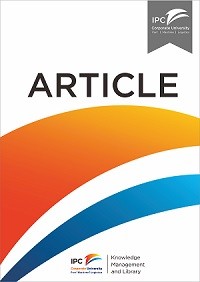Article
Logistics and Financial Performance: An Analysis Of 424 Finnish Small and Medium-Sized Enterprises
Purpose – To explore the present logistics performance of Finnish small and medium-sized
enterprises (SMEs) and to analyse the relationship between logistics performance and financial
performance in these firms.
Design/methodology/approach – The dataset comprises 424 SMEs that participated in a
nationwide Finnish logistics survey in 2006. Logistics performance measures were derived from the
survey data, and based on these values logistically top-performing firms were identified within
different industry groups. The financial performance of these firms was then examined vis-a` -vis their
industry peers using financial reports-based data.
Findings – The results imply that the overall level of logistics performance among the examined
companies might be at such an elementary level that no statistically observable positive linkage
between logistics performance and financial performance exists. The group of firms for whom logistics
is a key source of competitive advantage in this sample is small and therefore statistical analysis at an
industry level might be too aggregate to reveal this linkage. It is also surprising that service level and
logistics cost efficiency are positively related; thus, companies who have a relatively high-service level
tend to have relative low-logistics costs. These findings might imply that logistics is just starting to
gain more attention among SMEs in Finland and at least in the short-term, it might be relatively easy
for SMEs to gain competitive advantage by focusing more on logistics performance.
Originality/value – This study is the first large-scale attempt to focus on the logistics performance
of SMEs and analyse the linkages between financial and logistics performance among the companies
using both self-reported data and financial reports-based data. In addition, a theoretical framework of
the linkages between logistics performance and financial performance is suggested and revised based
on the findings of the study. The revised framework requires testing as a part of future research.
Ketersediaan
Informasi Detail
- Judul Seri
-
International Journal of Physical Distribution & Logistics Management
- No. Panggil
-
ATC LO TOY l
- Penerbit
- Finlandia : Emerald Insight., 2008
- Deskripsi Fisik
-
27 p
- Bahasa
-
English
- ISBN/ISSN
-
0960-0035
- Klasifikasi
-
LO
- Tipe Isi
-
-
- Tipe Media
-
-
- Tipe Pembawa
-
online resource
- Edisi
-
Vol. 38 Iss 1 pp
- Subjek
- Info Detail Spesifik
-
-
- Pernyataan Tanggungjawab
-
Toyli, Juuso
Versi lain/terkait
| Judul | Edisi | Bahasa |
|---|---|---|
| Contextual factors affecting knowledge management diffusion in SMEs | Vol. 114 No. 9, 2014 pp. 1415-1437 | en |
| Financial management | Second Ed. | en |
| Finance and accounting : for non financial managers | Sixth Ed. | en |
| Key Success Factors of Indonesia Pendulum from Logistics and Supply Chain Management Approaches | en |
Lampiran Berkas
Komentar
Anda harus masuk sebelum memberikan komentar

 Karya Umum
Karya Umum  Filsafat
Filsafat  Agama
Agama  Ilmu-ilmu Sosial
Ilmu-ilmu Sosial  Bahasa
Bahasa  Ilmu-ilmu Murni
Ilmu-ilmu Murni  Ilmu-ilmu Terapan
Ilmu-ilmu Terapan  Kesenian, Hiburan, dan Olahraga
Kesenian, Hiburan, dan Olahraga  Kesusastraan
Kesusastraan  Geografi dan Sejarah
Geografi dan Sejarah